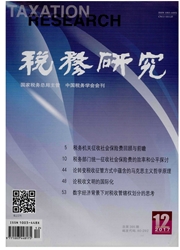

 中文摘要:
中文摘要:
资源税改革是当前全面深化财税改革的重要议题。我国的资源税属于产出型资源税,具有流转税属性,调节功能相对有限。与资源相关的税费,需要在中央与地方之间按统一标准分享;防止资源开采企业将税收负担转嫁给消费者;可以将资源税作为专门目的税。建立专款专用的“资源代际补偿基金”。在资源税的税制要素设计中,应本着“宜简不宜繁”的原则,与结构性减税相互呼应,避免因操作顺序不当,造成资源性产品价格的异动冲击。
 英文摘要:
英文摘要:
The resource tax reform is an important topic in the reform of the fiscal and taxation. China's resource tax, an output-based-type, shows certain turnover tax's attributes and relatively limited regulatory function. The resource taxes and fees should be shared based on a relatively uniform standard between the central and local government. To prevent resource development enterprises from shifting resource tax to consumers, resource tax can be taken as specialized earmarked tax to establish an exclusive fund of 'intergenerational compensation resource fund'. The elements of resource tax system should be designed as far simply as possible to work in concert with structural tax reduction to avoid wrong operating sequence which may cause an abnormal impact on prices of resource products.
 同期刊论文项目
同期刊论文项目
 同项目期刊论文
同项目期刊论文
 期刊信息
期刊信息
